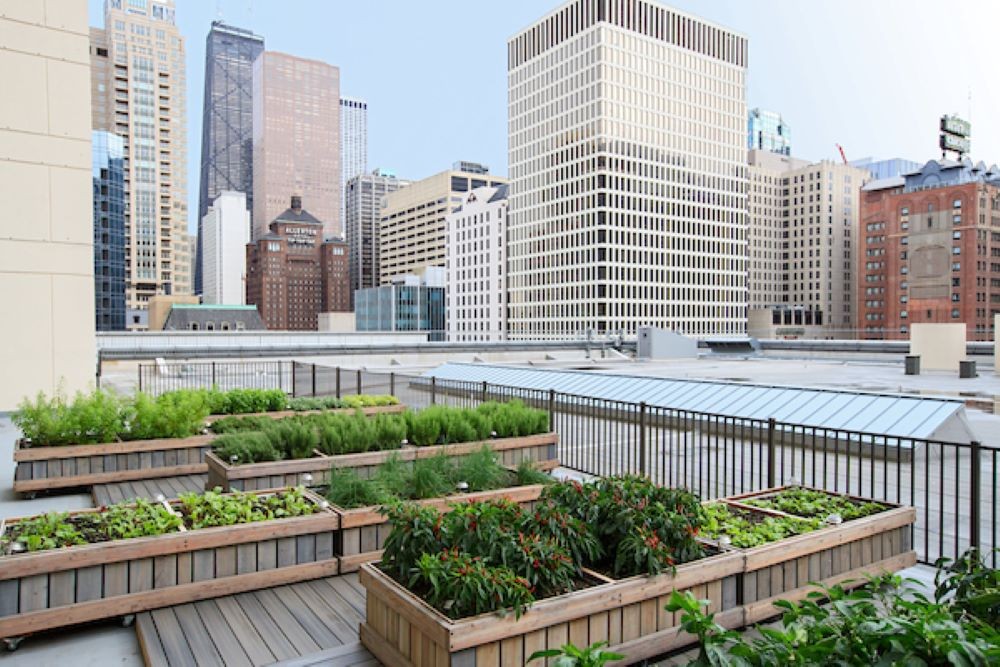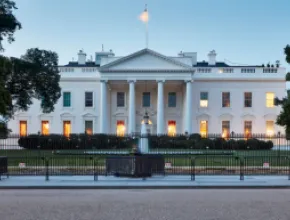“The Earth has a deadline,” at least according to Metronome’s 62-foot-wide, 15-digit electronic clock hanging above Manhattan.
For more than 20 years, Metronome’s clock has caught the attention of passersby on their way to work, looking up to check how much time they have left on their lunch break or before the subway leaves the station.
Now, Metronome’s clock is counting down the seconds we have left on Earth.
The Climate Clock is the work of two American artists, Gan Golan and Andrew Boyd, and serves as a reminder of the critical window of action humans have to prevent the effects of global warming from becoming irreversible.
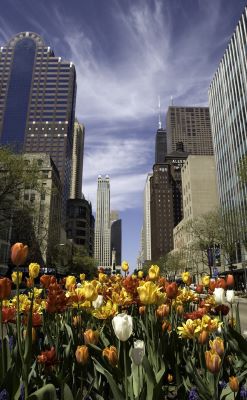
As of now, there are fewer than eight years remaining, and hotels like Chicago Marriott Downtown Magnificent Mile are making conscious efforts to do their part.
“Instead of just saying we are doing something, what are we really doing for [sustainability]?” asked Dan Egan, director of sales and marketing at Chicago Marriott Downtown Magnificent Mile. “Marriott, as a whole, is committed to protecting the environment. This is important not just for our hosts and our guests, but for future generations.”
[Related: The Future of Sustainable Business Travel in the Meetings Industry]
Chicago Marriott Downtown Magnificent Mile breaks its sustainability initiatives into four categories, represented by the acronym STOP: Save, Track, Optimize and Participate.
“We save and conserve energy, track and food source, so where is it coming from? Optimize and be efficient, so what tools can help our carbon footprint?” Egan elaborated. “But, then, we also need to participate and take action.”
Save
Chicago Marriott Downtown Magnificent Mile’s energy-conservation efforts became prominent in 2017 following the installation of 12 320W solar panels on the hotel’s ninth-floor rooftop. According to the state of Illinois’ formula guideline, the panels conserve more than 5,700 kWh per year.
“That allows us to provide enough energy to maintain the equivalent of our health club,” Egan said.

Recently, the hotel underwent a $190 million renovation. One enhancement included air handlers.
“It sounds like a small thing, but if you think about how much energy it takes to maintain this building and to handle air conditioning and heat, if you are able to balance that off and not use as much, it saves quite a bit from the environment in general,” Egan said.
Chicago Marriott Downtown Magnificent Mile also implemented initiatives to conserve water. On busy weekends, the 1,200-room hotel can welcome up to 4,000 people and its toilets flush almost constantly.
“We’ve converted [toilets] to 1.6 gallons, cutting our energy in half when it comes to water usage and waste overall,” Egan said.
[Related: Are Net-Zero Carbon Events the Future?]
Track
As a 95% scratch kitchen, Chicago Marriott Downtown Magnificent Mile gets most of its food from vendors that avoid using chemicals to grow crops and treat animals. It’s a priority, according to Egan, but what’s more important is making sure the uneaten food doesn’t go to waste.
“When we actually go through and utilize all that food and the proper items, we do composting,” Egan said. “We get up to 20,000 pounds of compost in a year, and we give that to the city of Chicago to use in the parks.”
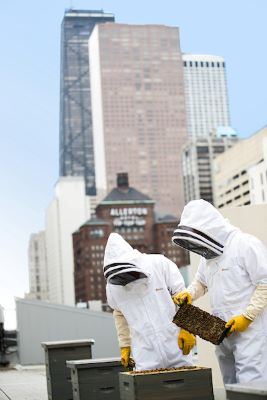
The city also uses the compost along Michigan Avenue in the flower beds lining the streets, and the hotel keeps its own garden on the ninth-floor rooftop as well, next to its solar panels and four honeybee hives.
“If you think about how they pollinate all the flowers and plants in the environment, that alone helps grow a lot of our natural resources,” Egan said. “We’ve got four colonies onsite, as well as gardens with seasonal organic herbs and vegetables, so a lot of our food and beverage offerings we take from right up there.”
The hotel also cooks with all recyclable cooking oils and uses paper straws.
Optimize
It can be difficult to hit all the nails on the head when it comes to sustainability initiatives, especially in hotels seeing thousands of people coming in and out the doors every day. While Chicago Marriott Downtown Magnificent Mile understands not every problem has a solution, there are always other ways to help.
By installing LED lighting, the hotel saves on changing bulbs as frequently as was deemed necessary before, which helps the environment through electricity conservation and reduced manufacturing implications. The hotel also purchased “linenless” tables for meetings and events, which present well without the need for linens, reducing the amount of laundry the hotel has to complete every day.
In every guest bathroom is a sign near the towel rack asking guests to consider reusing and hanging their towels to dry, and there’s an opportunity to recycle in every room.
[Related: Sustainable Venues for Greener Meetings in the Pacific Northwest]
Participate
While the plan is in place, Egan said, it’s just as important to make sure guests are aware of its existence.
“When you work in a hotel, clients always ask—whether it’s a group client or it’s an individual—what our sustainability program is at the hotel,” Egan said. “Meetings are very important. A lot of corporations and associations are very involved in sustainability, and when they come out, they want to know what we’re going to do for it.”
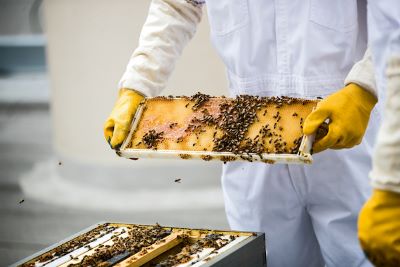
For meetings and events in particular, Chicago Marriott Downtown Magnificent Mile put together 100% recycled notepads and pens, as well as digital menus to reduce paper waste and reusable lunch boxes and water bottles.
“If you’re a meeting planner, you remember the days when you would get this big print-out at the end of the day, almost an inch thick, and you would have to go through it all and review it and make corrections before giving it back,” Egan said. “More printing would take place that is electronic now.”
While the hotel and Chicago’s dedication to sustainability is commendable, Egan understands that the hotel’s and city’s efforts will consistently demand innovation and attention moving forward.
“It’s the willingness of the hotel and the city,” Egan said. “… There’s a lot of things we can do to help.”
Read this next: F&B Revolution: From Upcycled Food to Eliminating Meat at Meetings



